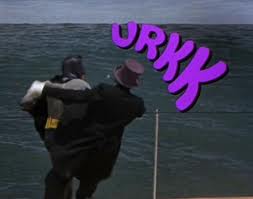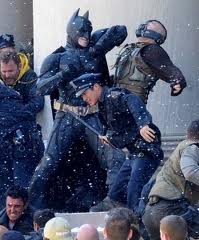Serendip is an independent site partnering with faculty at multiple colleges and universities around the world. Happy exploring!
Literary Kinds 2012

Welcome to Literary Kinds, an English course offered in Spring 2012 @ Bryn Mawr College. This is an interestingly different kind of place for writing, and may take some getting used to. The first thing to keep in mind is that it's not a site for "formal writing" or "finished thoughts." It's a place for thoughts-in-progress, for what you're thinking (whether you know it or not) on your way to what you think next. Imagine that you're just talking to some people you've met. This is a "conversation" place, a place to find out what you're thinking yourself, and what other people are thinking. The idea here is that your "thoughts in progress" can help others with their thinking, and theirs can help you with yours.
Who are you writing for? Primarily for yourself, and for others in our course. But also for the world. This is a "public" forum, so people anywhere on the web might look in. That's the second thing to keep in mind here. You're writing for yourself, for others in the class, AND for others you might or might not know. So, your thoughts in progress can contribute to the thoughts in progress of LOTS of people. The web is giving increasing reality to the idea that there can actually evolve a world community, and you're part of helping to bring that about. We're glad to have you along, and hope you come to both enjoy and value our shared explorations. Feel free to comment on any post below, or to POST YOUR THOUGHTS HERE.
cooonfuzzzzzed
In class, we agreed that A Game of You is scary because it shows us that the boundary we draw between the dream world and the real world is not as hard and fast as we like to think. This doesn’t feel scary to me anymore. Isn’t it exciting that the things that happen in our head have the ability to manifest themselves in the physical world? I know that my imaginings inform my choices and my identity and...that’s cool!
on podcasts
1. Memory and Forgetting: For me, these stories beg questions about the point of telling non-fiction stories. If we can never remember something with complete accuracy, why do we tell stories in the first place? Does the third story answer this? Is it good or bad that every time we remember something (tell a story) the memory takes us farther away from what actually happened? Should we try to make technology so that we can remember stories accurately/does voice recording do this? How has Henrietta Lacks’ story changed because of Skloot’s book and the BBC documentary? How have our stories changed as we tell and re-tell them?
Post-Discussion Ramblings

WAR OF THE WORLDS DOWNLOAD!
http://www.archive.org/details/OrsonWellesMrBruns
Rather than listen to the War of the Worlds in 7 parts over YouTube, I've provided the link above so that you can download it into an mp3 file. (I couldn't seem to get my copy up on Serendip...) You can either just stream it straight off the web (for the entire 59 minutes and 19 seconds) or download it and listen to it on the treadmill. (Which I did the first time I downloaded it ;) )
Hope this is helpful!

Persepolis In Pictures
I found this review for the film, Persepolis and what really caught my attention was the section that says:
If “Persepolis” had been a conventional memoir rather than a graphic novel, Ms. Satrapi’s account of her youth in pre- and post-revolutionary Iran would not have been quite as moving or as marvelous. Similarly, if the movie version had been conventionally cast and acted, it would inevitably have seemed less magical as well as less real.
I can't help but wonder why the conventional memoir wouldn't be as moving as a graphic novel and why a conventional movie, rather than an animated one, would have seemed "less real". I've always equated images and animation with fantasy, rather than realism. But I also find myself agreeing with the point that Scott puts forth.
I'm not even sure why that is but I wonder if anyone has a response? Is it because of the nature of the narrative? Or is it because Persepolis has already been written in the form of a graphic novel that conceiving it in any other way seems difficult?

English Lab? - I've been inspired.
So, I've been interning this week for a publishing company called, Just World Books, LLC. I was lucky enough to secure this position through Bryn Mawr's externship program and fortunate enough to be welcomed by the company's wonderful founder Helena Cobban.
Perhaps this is still premature, because on my limited experience, but publishing seems right for me. I want to share this with you all since, first off, this is an English class, and second... there is so much I was unaware of, and this whole experience has got me thinking about English as a profession.
Most people won't admit it, but we very often claim to know more than we do. We nod our heads, pay close attention and interject when it seems safe. This is helpful in many situations, and I'm glad I've learned to do it. After all, "knowing" is a key to gaining opportunities- a necessity when trying to climb whatever ladder you set before yourself. But anyway, there comes a time when "knowing" can only take you so far. Eventually, when it comes time for you to take the reigns, asking questions is more important than just saying "yes". We've all heard this before and it seems obvious, but practice in doing is very different than learning how to appear knowledgeable. A fact that hit me like a hammer this week when I learned where ISBN numbers come from! Did you know you have to buy them? Anyway…

Gutters: An Evolution in Thought
Before I began this class, I would have said that I am not genre-ist. As I have mentioned in earlier posts, I read, and have respect for, much-maligned genres such as romance, science-fiction, and comics. And yet, in some ways I do believe that I am genre-ist: not prejudiced against content, but against form.
In Understanding Comics: The Invisible Art, Scott McCloud speaks of mistaking the message (content) the messenger (form) (McCloud 6). What I have been doing is similar – not disregarding the message because of the messenger, but rather keeping the messenger locked up in a little cupboard of literary analysis all its own. While I have thought of comics in terms of prose literature, and used non-comics based terms and ideas to think of comics, I have not done the opposite. Comics have remained in their cupboard. I have not used concepts of phrases that specifically come from the world of comics to look at literature in non-comic form. This impulse sprang, I believe, from a deep-seated belief that one format was inherently better – more literary. It was genre-ist.
It was also, of course, wrong.

The complete Tingis

All genres have gaps of indeterminacy as each reader creates an account of their own. As a particular choice of words, a Google-search click away, an abrupt ending to a short story, or the space between comics panels, gaps appear in all genres and are to be filled by the reader. A text is subject to a reader’s interpretation as the reader fills in these gaps through uniquely drawn connections and meanings that are relevant to him or her. Whether the text appears as an online blog, an academic journal, a short story, or a graphic novel, a unique reading experience will be created as one completes the missing story in a text. As we continue engaging our class discussion on literary genre, it may be agreed upon that we all have had different readings of a text and that gaps of indeterminacy will prevail.
Writing a Success Story: The evolution of genres in the classroom
“Disability is a mode of human difference (Price, p.4).” In the past decades there has been a growing emphasis on the differences among people within the school setting. This emphasis on differences has led us to create more genres of students existing within the classroom. Advances in psychology have increased awareness of various mental differences and how they affect the success in the school setting. The expectations for success have now changed because with this new awareness every individual is provided with the opportunity to learn, leading to an increase in the categories society places students into.
One system does not work for everyone
One System Does Not Work for Everyone
When I was in middle school, I had to take a physical education class every other day. Every week, on the last day of class, our teachers would let us choose a sport that we wanted to play: kick ball, soccer, basketball or walking. Of course, I chose soccer every time - it is my favorite sport to play. After about three weeks, the teachers realized that the same people were picking the same sports to play every time. They announced that since some students were dominating one sport, they were going to create a structured space for all students to play each sport. So they put us in groups and rotated us throughout the sports. What happened to free play? The teachers thought that students who were always walking every week secretly wanted to play soccer. They thought they were doing them a favor, but those students just stood on the field. They didn’t want to play a contact sport with lots of competition and running. They wanted to relax and think and walk.
The Discourse of Knowledge: An Exploration of the Evolving Genre of Education
“Learning is like a vending machine,” my father used to tell me, “You get out of it however much you put in.” The equation seemed easy enough. A student goes to class, sits in a chair and listens as the teacher speaks for a given amount of time, and by putting in the effort of listening and paying attention, she learns the concepts the teacher is trying to teach. This process seemed to fit the equation, seemed to be effective enough. After all, there is no other way that society has ever learned. For hundreds of years, we have been learning through a hierarchical structure, one in which there are set roles for teacher and student, and no movement in between the two.

Taking a Different Road: How Does Form Change Content?
In Understanding Comics, Scott McCloud makes a point to distinguish form from content. Comics have been traditionally thought of as superhero picture books for an immature audience. More recently, however, comics have grown up. Much as a child might transition from being called Jimmy to James as an adult, now the comic is the graphic novel and its form is being utilized address more serious themes. But what is the effect? How does this format alter the content or the way in which we interpret the material?
A new space:
One of the outcomes derives from the stereotype of comics themselves. To take a very serious issue of a country and its people in turmoil, as Satrapi does in Persepolis, and place it in a historically child-like format alters the space in which our perceptions and interpretations of the novel are formed. It invites the reader into the more basic level of reasoning that we used as children, an exploration of content from a different but formerly familiar place. In the same way that you might reminisce about your younger days when visiting your old elementary school, maybe we are being asked to reminisce about the way we used to think about the world when we’re placed in this youthful space versus the space in a very adult-like piece of literature.

The Classroom as an Evolving Genre
Genres allow us to communicate with each other and challenge our thoughts. Genres have been emerging and evolving because of sociological and psychological aspects. Classrooms can be considered a genre of their own due to the fact they are in constant evolution but they are a genre within the genre that is schools. The genre of classrooms branches out to the evolution of our thoughts and the evolution of the classroom as a learning space and the technology that enriches our experience. For the longest time, classrooms have been defined as enclosed spaces where students go to learn. It is a collaborative effort between students and professors to make classrooms a safe and confortable environment that inspires students to disagree without launching personal attacks, stereotyping, judging, and encourages and expects everyone to respectfully disagree without disagreeing with you as a whole. Students often bring their own experiences and expectations on what they would like to learn. The classroom is constantly evolving as a genre because vigorous discussions encourage us students to challenge each other’s opinions for the sake of better understanding of the lessons at hand as well as the world outside the classroom.

Through Batman's Mask: A Look At Differing Mediums
Before you read this paper, do me a favor. Sit down, relax, and try not to think too much. This paper asks the question, how do you think, and if you are thinking while you are reading about how to think… you can see how the question can become very complicated. Let’s avoid complication for the time being. I want your initial reaction, raw and instinctual. Then, we can debate and complicate the issue until our brains explode.
Now, look at the three pictures below, and for each, say out loud any words that come to your mind.





